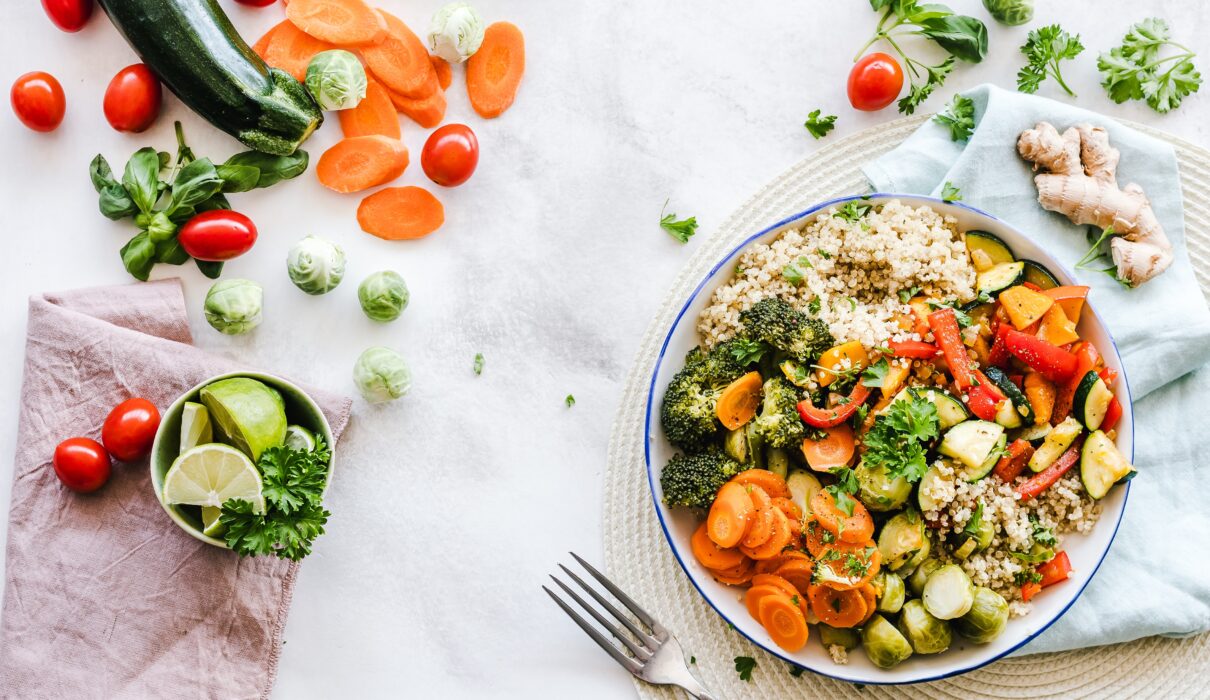Every colorectal surgeon knows that our digestive system plays a vital role in maintaining overall health, and the key to a happy gut lies in nurturing the delicate balance of microbes residing within it. The gut microbiome, a complex community of trillions of bacteria and other microorganisms, influences various aspects of our well-being, including digestion, immunity, and even mental health. A gut-healthy diet, rich in diverse and nourishing foods, can work wonders in preventing certain health conditions and promoting overall vitality. In this article, a leading colorectal surgeon in Melbourne (female surgeon) will explore how a gut-health diet contributes to well-being and provide insights into the foods and beverages that can help you achieve a flourishing gut.
The link between gut health and well-being
A balanced and thriving gut microbiome is associated with a myriad of health benefits. According to a leading female surgeon specialising in colorectal health conditions, a healthy gut:
- Boosts digestion: A diverse array of gut microbes helps break down complex food particles, aiding digestion, and improving nutrient absorption.
- Reduces disease risks: Supporting your gut health helps to lower risks for a wide range of health conditions like colorectal cancer. It can also help reduce flare-ups from chronic conditions like IBS and haemorrhoids.
- Strengthens immunity: A well-balanced gut microbiome supports a robust immune system, protecting against infections and illnesses.
- Reduces inflammation: A healthy gut environment is less likely to trigger chronic inflammation, which is associated with various health conditions.
- Supports mental health: The gut-brain axis enables bidirectional communication between the gut and the brain, influencing mood and mental well-being.
- Regulates weight: Certain gut microbes are associated with weight management, and a healthy gut may contribute to maintaining a healthy weight.
What to eat for a gut-health diet:
Here’s how to support your gut health through your diet, from a colorectal surgeon in Melbourne.
- Fibre-rich foods: Aim for a diet high in fibre, as it promotes the growth of beneficial gut bacteria. Whole grains, fruits, vegetables, legumes, and nuts are excellent sources of fibre.
- Probiotic foods: Incorporate probiotic-rich foods that contain live beneficial bacteria. Yogurt, kefir, sauerkraut, kimchi, miso, and tempeh are fantastic options to introduce probiotics into your diet.
- Prebiotic foods: Prebiotics are non-digestible fibres that serve as food for beneficial gut bacteria. Garlic, onions, leeks, bananas, asparagus, and oats are great sources of prebiotics.
- Fermented foods: Fermented foods not only provide probiotics but also help improve nutrient absorption. Include fermented options like yogurt, kombucha, pickles, and traditional fermented soy products in your meals.
- Healthy fats: Embrace healthy fats, such as those found in avocados, nuts, seeds, and olive oil. These fats support gut health and reduce inflammation.
- Omega-3 fatty acids: Fatty fish like salmon and mackerel are rich in omega-3 fatty acids, which promote gut health and overall well-being.
What to drink for a gut-health diet:
- Water: Stay well-hydrated with plain water, which helps maintain a healthy digestive system.
- Herbal teas: Herbal teas like peppermint, ginger, and chamomile can soothe the digestive tract and reduce inflammation.
- Green tea: Green tea is rich in polyphenols, which may contribute to a diverse gut microbiome.
- Probiotic beverages: Include probiotic drinks like kefir and kombucha in your diet for added gut-friendly benefits.
Avoid or limit:
- Processed foods: Highly processed and sugary foods may negatively impact gut health and promote harmful bacteria.
- Artificial sweeteners: Some artificial sweeteners can disrupt the gut microbiome and should be consumed in moderation.
- Excessive alcohol: High alcohol intake can harm the gut lining and disrupt the microbial balance.
If you are having any issues with your gut health, it’s always a good idea to see your colorectal surgeon in Melbourne for a colonoscopy or check-up. This is especially important if you are 45 or older, have a family history of bowel conditions or colorectal cancer, or if you are experiencing bleeding or fullness in your abdomen. For your comfort during these intimate procedures, you can always request a female surgeon.
A gut-healthy diet is essential for promoting overall health and preventing certain conditions by nurturing a diverse and thriving gut microbiome. Embrace a diet rich in fibre, probiotics, and prebiotics, and complement it with plenty of hydrating and gut-supporting beverages. By taking care of your gut, you’ll be paving the way to a healthier and more vibrant life.
As always, it’s best to consult with a healthcare professional, registered dietitian, or your colorectal surgeon in Melbourne before making significant changes to your diet, especially if you have any existing health conditions. Remember, you can always request a female surgeon if it makes you feel more comfortable! So, let your diet be your ally in cultivating a flourishing gut and unlocking the potential for optimal well-being.


